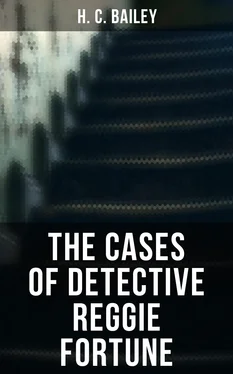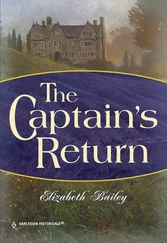H. C. Bailey
The Cases Of Detective Reggie Fortune
Mr. Fortune's Practice collection of mystery tales

Books
OK Publishing, 2020
musaicumbooks@okpublishing.infoTous droits réservés.
EAN 4064066396282
THE ASCOT TRAGEDY
THE PRESIDENT OF SAN JACINTO
THE YOUNG DOCTOR
THE MAGIC STONE
THE SNOWBALL BURGLARY
THE LEADING LADY
THE UNKNOWN MURDERER
CASE I
Table of Contents
THAT is what it would have been called in the evening papers if they had known all about it. They did not. They made the most of the mystery, you remember; it was not good for them or you to know that the sequel was a sequel. But there is no reason why the flats should not be joined now.
So let us begin at Ascot on the morning of that Cup Day. One of our fine summers, the course rather yellow, the lawns rather brown, a haze of heat over the distant woodland, and sunshine flaming about the flounces and silk hats. There were already many of both in the Royal Enclosure (it was a year of flounces), and among them, dapper, debonair, everybody’s friend, the youngest middle-aged man in Europe. He, of course, is the Hon. Sidney Lomas, the Chief of the Criminal Investigation Department, though mistaken by some outsiders for a comic actor of fame. Tripping back from a joke with the stewards, he discovered, sprawling solitary on the end of one of the seats, Mr. Fortune, the adviser of him and all other official and important people when surgery, medicine or kindred sciences can elucidate what is or is not crime. No one looks more prosperous than Reginald Fortune. He is plump and pinkly healthy, he and his tailor treat each other with respect, his countenance has the amiability of a nice boy.
But on this occasion Lomas found fault with him. “Why, Fortune, you’re very pensive. Have you lost the lady of your present affections? Or backed a wrong ’un?”
“Go away. No fellow has a right to be as cool as you look. Go quite away. I feel like the three fellows in the Bible who sang in the furnace. How can you jest, Lomas? I have no affections. I cannot love, to bet I am ashamed. I always win. Half-crowns. Why is the world thus, Lomas?”
“My dear fellow, you’re not yourself. You look quite professional.”
Reggie Fortune groaned. “I am. This place worries me. I am anatomical, ethnological, anthropological.”
“Good Gad,” said Lomas.
“Yes. A distressing place, look at it”; he waved a stick.
The people in the Royal Enclosure were as pleasant to behold as usual. Comely girls and women who had been comely passed in frocks of which many were pretty and few garish; their men were of a blameless, inconspicuous uniformity.
“What is he?” said Reggie Fortune. “I ask you. Look at his feet.”
What Lomas saw was a man dressed like all the rest of them and as well set up, but of a darker complexion. He did not see anything remarkable. “The big fellow?” he said. “He is a little weak at the knee. But what’s the matter with him?”
“Who is he?” said Reggie Fortune.
Lomas shrugged. “Not English, of course. Rather a half-caste colour, isn’t he? From one of the smaller legations, I suppose, Balkan or South American.” He waved a hand to some elegant aliens who were at that moment kissing ladies’ hands with florid grace. “They all come here, you know.”
“I don’t know,” said Reggie Fortune peevishly. “Half-caste? Half what caste? Look at his feet.” Now the man’s feet, well displayed beneath white spats, were large and flat but distinguished by their heels, which stuck out behind extravagantly. “That is the negro heel.”
“My dear Fortune! The fellow is no more a negro than I am,” Lomas protested: and indeed the man’s hair was straight and sleek and he had a good enough nose, and he was far from black.
“The negro or Hamitic heel,” Reggie Fortune drowsily persisted. “I suspect the Hamitic or negro leg. And otherwise up above. And it’s all very distressing, Lomas.”
“An Egyptian or perhaps an Arab: probably a Foreign Office pet,” Lomas consoled him. “That would get him into the Royal Enclosure.”
Lomas was then removed by a duchess and Reggie Fortune tilted his hat still farther over his eyes and pondered whether it would be wise to drink before lunch and was dreamily aware of other people on his seat, an old man darkly tanned and soldierly in the custody of a little woman brilliantly dressed and terribly vivacious. She chattered without a pause, she made eyes, she made affectionate movements and little caresses. The old man though helpless seemed to be thinking of something else. And Reggie Fortune sketched lower and still lower estimates of human nature.
They went away at last when everybody went away to gather in a crowd at the gates and along the railings for the coming of the King. You will please to observe that the time must have been about one o’clock.
Reggie Fortune, one of the few, remained on his seat. He heard the cheering down the course and had sufficient presence of mind to stand up and take off his hat as the distant band began to play. Over the heads of the crowd he saw the red coats of the postilions and a gleam of the grey of the team as the King’s carriage swept round into the enclosure. The rest of the procession passed and the crowd melted away. But one man remained by the railings alone. He was tall and thin and he leaned limply against the railings, one arm hanging over them. After a little while he turned on his heel and fell in a heap.
Two of the green-coated wardens of the gate ran up to him. “Oh, Lord,” Reggie Fortune groaned, “why did I be a doctor?” But before he could get through the flurry of people the man was being carried away.
The gift of Lomas for arriving where he wants to be displayed itself. Lomas slid through the crowd and took his arm, “Stout fellow! Come along. It’s Sir Arthur Dean. Touch of sun, what?”
“Arthur Dean? That’s the Persia man, pundit on the Middle East?”
“That’s the fellow. Getting old, you know. One of the best.”
Into the room where the old man lay came the shouting over the first race. By the door Lomas and an inspector of police talked in low tones, glancing now and then at Reggie, who was busy.
“Merry Man! Merry Man! Merry Man!” the crowd roared outside.
Reggie straightened his bent back and stood looking down at his patient. Lomas came forward. “Anything we can get you, Fortune? Would you like some assistance?”
“You can’t assist him,” said Reggie. “He’s dead.”
“Merry Man!” the crowd triumphed. “Merry Man!”
“Good Gad!” said Lomas. “Poor fellow. One of the best. Well, well, what is it? Heart failure?”
“The heart generally fails when you die,” Reggie mumbled: he still stared down at the body and the wonted benignity of his face was lost in expressionless reserve. “Do you know if he has any people down here?”
“It’s possible. There is a married son. I’ll have him looked for.” Lomas sent his inspector off.
“I saw the old man with a woman just before he died,” Reggie murmured, and Lomas put up his eyeglass.
“Did you though? Very sudden, wasn’t it? And he was all alone when he died.”
“When he fell,” Reggie mumbled the correction. “Yes, highly sudden.”
“What was the cause of death, Fortune?”
“I wonder,” Reggie muttered. He went down on his knees by the body, he looked long and closely into the eyes, he opened the clothes … and to the eyes he came back again. Then there was a tap at the door and Lomas having conferred there came back and said, “The son and his wife. I’ll tell them. I suppose they can see the body?”
Читать дальше













